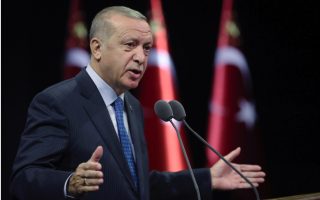A Greece without strategy?

The other day, Professor Giannis Voulgaris wrote the following in regard to Greek-Turkish relations: “There is a false but enduring mantra in Greek public discourse which says: We pity ourselves because we do not have long-term national strategy in alleged contrast to Turkey […] looking back, we see Turkey periodically changing its national strategy due to its ambivalent identity. Being a key member of NATO during the Cold War, later aspiring to become a member of the EU in the 80s and 90s, and now an aggressive peripheral power with mixed geopolitical and religious motives. In contrast, Greece has remained steady in its policy, aiming at its inclusion into ever closer Europe.” (Ta Nea 22.08.2020)
Something similar was said by Foreign Affairs Minister Nikos Dendias: “I am saddened when a politician of a neighboring country is presented as a genius, who has strategic planning deep into the future […] it is totally unfair. Greek foreign policy, with its mistakes, its misses, and its limitations, has resulted in great triumphs! Rightly included in those triumphs is our entry into the common system, the Economic and Monetary Union (EMU), and also the accession of Cyprus to the EU. A massive triumph. This series of wise policy objectives include the key agreements which we are discussing today…” (Parliament 26.8.2020)
Truly, the Greek political class kept the wheel steadily pointing West, even after the change of government of 1967, which was the most anti-Western period in our history. Andreas Papandreou lingered on the “European Economic Community (EEC) of monopolies,” and he decided that the bases that he would supposedly kick out of the country would be kept here, with all the political parties – with the exception of the Greek Communist Party (KKE) – voting in favor of the Maastricht Treaty. In addition, during the most anti-European period, the leftist Prime Minister Alexis Tsipras performed his famous “kolotoumba,” eventually refusing to pull the country away from Europe, as (most) members of his party had wished.
It is unfair to repeat, on the altar of a miserable opposition, the statement “What did you expect? Greece does not have a strategy,” like it was throughout the previous decade with repeating “What did you expect? It was a failed negotiation.” There is, however, a stunning detail. Our strategic relationship with Israel began under George Papandreou, a Socialist, in 2010, then continued under conservative Prime Minister Antonis Samaras (2012-14), still remained under Tsipras (2015-19), and of course continues today. This means that this relationship endured through four governments of completely different political ideologies and objectives. This should point to the truth about our national strategy as a whole, despite the petty fights in our Parliament.





